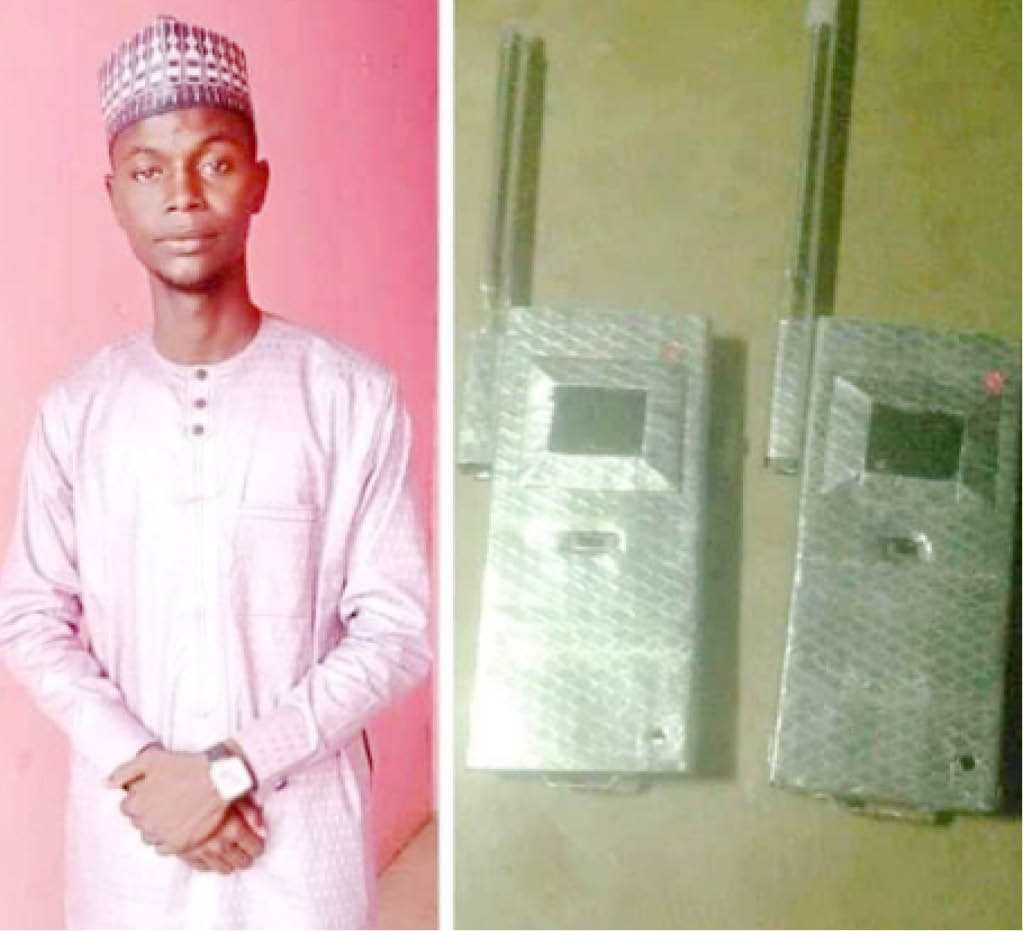How I developed cell phones from scraps –Young Yobe scientist
Dagona, who teaches at a secondary school, has now developed a cellphone which operates without a sim card.

Umar Usman Dagona and his fabricated cell phones
Twenty two-year old Yobe-based young scientist, Umar Usman Dagona, is not strange to taking up challenges.
Dagona, in 2019 participated and won the Imaging National Chemistry Competition; beating over 1,700 others in Abuja.
- Osinbajo, Barkindo, Sylva for Valuechain oil and gas lecture
- When UN Dep Sec-Gen Amina makes case for transition to ranching
His story was first featured on Kanem Trust two years back which prompted the Yobe State Government to offer him a teaching job in one of the secondary schools in the state.
Dagona, who teaches at a secondary school, has now developed a cellphone which operates without a sim card.
Sharing his story with Kanem Trust, he explained that he developed the cellphones from scraps of old phones and radio sets.
He explained that, “I use scraps and circuits from other phones and make my in-built multicellular connectivity. What costs me much is the transmitter. The transmitters cost me around N15,000 each.
“You know invention is full of trial and error; some experiments worked, some failed, but the hiccups did not stop me since I started this project in February, 2019. It took me nearly three years to develop these cell phones.
“What makes these cell phones different from ordinary phones is that they can make and receive calls without sim cards.
“They are working within close distance between 20 and 50 meters only,, but I am currently putting more effort to see how I can update their network, sensor, GPS, as well as other in-built systems to enable them make calls in a wide range”
On what motivated him to invent the cell phones, Dagona said he was working on how best he could bring solutions through science and technology as his aim is to ease communication within his academic environment.
He said the cell phones he invented would allow for easy student-lecturer interaction without network stress and recharge card cost.
he said, “These cell phones would help teachers and lecturers to make and receive calls from head of department or dean without any network failure, the address and identity of users would be inserted to enable them access each other.
“I am actually inspired by the way technology is always changing how things work in both developed and developing countries. Down here we are battling with the mindset that inventing new technology or idea is only a white man’s job, but let me tell you, even the wrist watches and some of the gadgets we use are being invented by children in the Western world.
“So I believe if we can read science in our schools, we should be able to produce meaningful projects that could change our lives.
“We have many young inventors who can develop solar, mechanical and electrical gadgets that Nigeria may use to generate more revenue like other developed and developing countries.
“With support from government and other responsible agencies we will achieve more inventing useful projects.”
Dagona has established his own science foundation and is currently working along with seven engineers on a new project. He has also participated in a young inventor’s contest where he showcased a proposed mini spying car.
He holds National Certificate in Education (NCE) in Chemistry from Umar Suleiman College of Education, Gashua, Bade Local Government Area of Yobe State.
